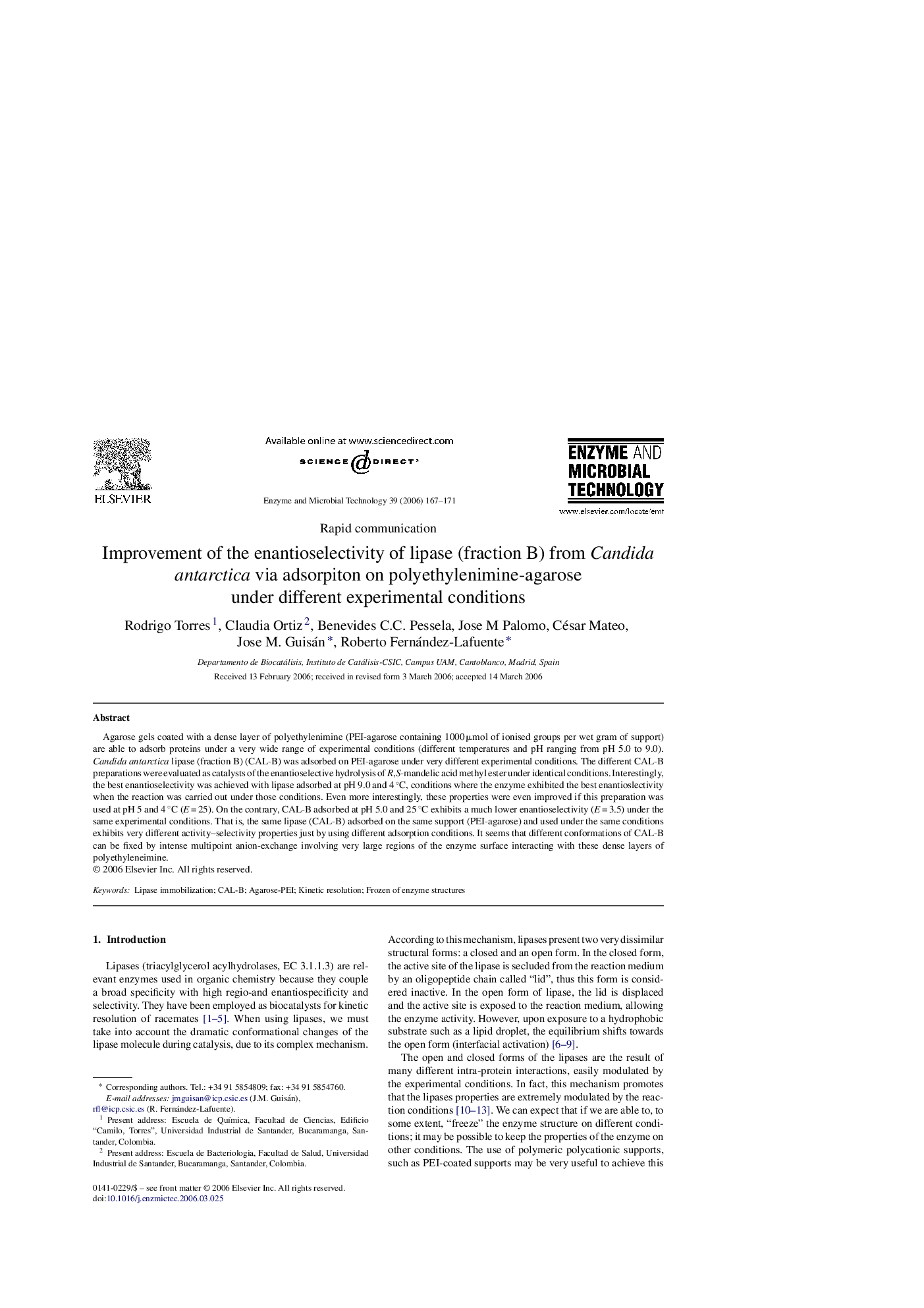| Article ID | Journal | Published Year | Pages | File Type |
|---|---|---|---|---|
| 18307 | Enzyme and Microbial Technology | 2006 | 5 Pages |
Agarose gels coated with a dense layer of polyethylenimine (PEI-agarose containing 1000 μmol of ionised groups per wet gram of support) are able to adsorb proteins under a very wide range of experimental conditions (different temperatures and pH ranging from pH 5.0 to 9.0). Candida antarctica lipase (fraction B) (CAL-B) was adsorbed on PEI-agarose under very different experimental conditions. The different CAL-B preparations were evaluated as catalysts of the enantioselective hydrolysis of R,S-mandelic acid methyl ester under identical conditions. Interestingly, the best enantioselectivity was achieved with lipase adsorbed at pH 9.0 and 4 °C, conditions where the enzyme exhibited the best enantioslectivity when the reaction was carried out under those conditions. Even more interestingly, these properties were even improved if this preparation was used at pH 5 and 4 °C (E = 25). On the contrary, CAL-B adsorbed at pH 5.0 and 25 °C exhibits a much lower enantioselectivity (E = 3.5) under the same experimental conditions. That is, the same lipase (CAL-B) adsorbed on the same support (PEI-agarose) and used under the same conditions exhibits very different activity–selectivity properties just by using different adsorption conditions. It seems that different conformations of CAL-B can be fixed by intense multipoint anion-exchange involving very large regions of the enzyme surface interacting with these dense layers of polyethyleneimine.
